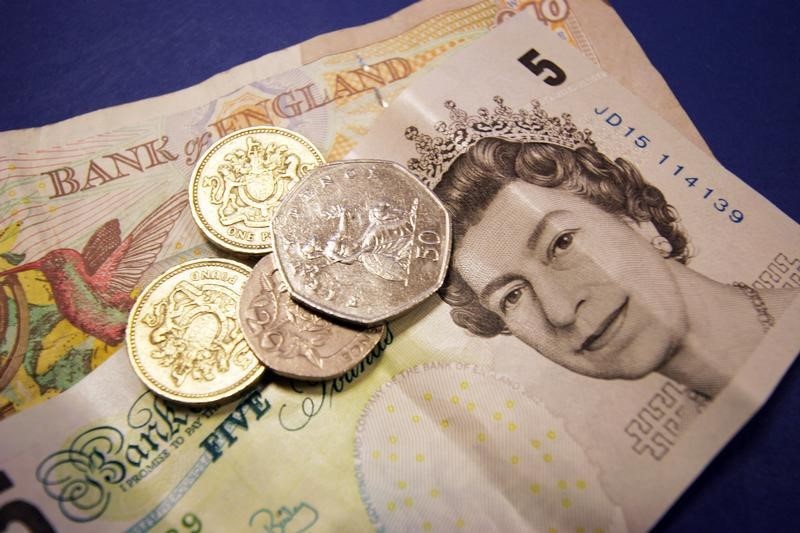Investing.com - The pound rose against most major currencies on Monday as it looked to recover losses made from last Thursday’s Bank of England Monetary Policy Committee meeting, where growth forecasts were trimmed as a result of Brexit-induced sluggish economic growth.
GBP/USD was steady at 10:00 GMT on Monday at 1.3050, close to Friday’s trough of 1.3021. The pound fell hard against the dollar with the double-whammy dovish BoE and better-than-expected US jobs report on Thursday and Friday last week.
In a 6.2 split vote, the MPC voted to keep interest rates at the historically low 0.25%. In 2018, growth is expected to slow to 1.6% down from a previous forecast of 1.7%.
The bank also expects wage growth of 3% in 2018, downgraded from May’s forecast of 3.5%.
The Halifax House Price Index on Monday showed the slowest house price growth for 4 years as inflation bites consumer spending. At 2.1% year-on-year, house price growth for July was down from June’s 2.6% increase. July last year had seen growth of more than 8%. The forecast had been 2.0%.
This comes as Visa reported the greatest fall in UK consumer spending for four years. July saw the fourth consecutive month of a decline in spending, at 0.8% in real terms.
The U.S. dollar index, which measures the greenback’s strength against a trade-weighted basket of six major currencies, was last at 93.28, down 0.10% from the previous close.
The dollar dipped lower on Monday, pulling back from Friday’s highs reached after the release of better-than-expected U.S. jobs data, particularly the non-farm payrolls.
The dollar strengthened as the economy added 209,000 jobs in July, far greater than the consensus increase of 183,000. The unemployment rate ticked down to 4.3% in July from 4.4% the previous month, in line with expectations. Average hourly earnings increased by 0.3% last month, in line with forecasts.
The dollar jumped as the data fuelled expectations that the Federal Reserve will increase interest rates for a third time this year as planned. Inflation data released this week will further determine if a rate hike looks likely.
Sterling struggled against the euro, which continued its rally above 0.900. EUR/GBP was 0.9041, up 021%.
Against the commodity currencies, the pound fared better. GBP/NZD was up 0.78% at 1.7735. Investors will be looking to the monetary policy statement from the Reserve Bank of New Zealand on Thursday.
GBP/AUD was up 0.33% at 1.6551. GBP/CAD had fallen on Thursday and then again on Friday following Canadian employment figures. GBP/CAD edged up 0.30% to 1.6551.
The pound was stronger against safe haven currencies. GBP/JPY was up 0.19% at 144.66, while GBP/CHF was steady, edging up just 0.11% to 1.2700.
Investors will be watching UK industrial data for July released on Thursday.
